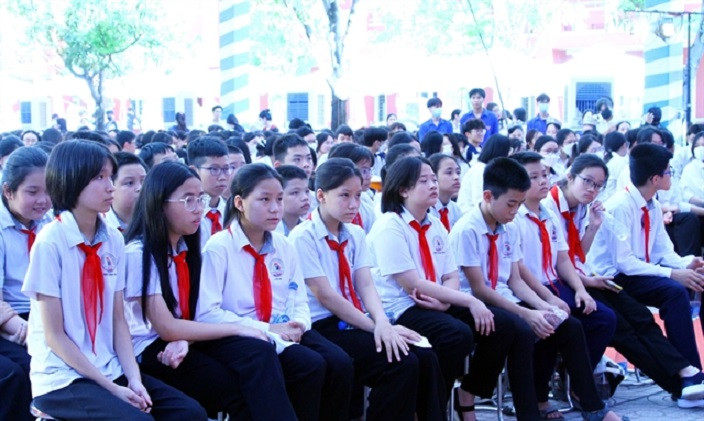
The debate over school violence in Việt Nam has been thrust into the spotlight following a rise in classroom fights among students prompting a call for change from experts.
At Châu Văn Đơ Secondary School in Sóc Trăng Province, a female student was filmed assaulting another student over a damaged lipstick. Their classmates watched it but did nothing to stop it.
At Mỹ Văn Highschool in Phú Thọ Province, a female pushed her classmate to the ground and beat her with a helmet. A male student tried to stop it but was held back by her friends.
The fights prompted a swift response from school officials and local authorities. Investigations have been launched to determine the causes of the conflicts and punish those involved.
The fights have also exposed the need for schools to foster an environment where conflicts can be resolved without violence. Educational experts have weighed in on the situation and offered insights into potential solutions.
Psychologist Nguyễn Tùng Lâm believes that students can easily get upset by things happening around them because they are at an age where their bodies and minds are changing.
Adults must help them understand and manage their feelings and thoughts to suppress their urges of violence.
He also highlights the importance of a multi-faceted approach to address school fights, which includes psychological, managerial, and legal strategies.
He advocates for an educational system that caters to the psychological development of students and incorporates life values and skills into the curriculum to prevent aggressive behaviours.
Regarding the managerial aspect, he suggests schools be strict about rules to ensure everyone knows their responsibilities, especially those in charge. Teachers and staff must keep a close watch to ensure schools are safe.
Observing the law is equally important, he says. If a school fight constitutes a legal violation, the students involved must be held accountable for the legal consequences.
Bùi Hồng Quân, a lecturer in the Department of Psychology at HCM City University of Education, underlines the role of positive relationships in preventing school violence.
He says that when friendships are nurtured, students are less likely to resort to violence to resolve their dispute because they can either talk it out or tell a teacher to mediate it.
He also cites the Happy School Criteria for educational institutions in HCM City, which says that "friendships and positive relationships in schools are based on trust, tolerance and fairness."
The point is echoed by Nguyễn Viết Hiền, a lecturer at the University of Education under Vietnam National University, who stresses the importance of psychological counselling in schools.
He believes that teachers with proper training in psychological counselling can identify and assist students in need promptly, and implement preventive programmes to support them.
In response to these concerns, the Ministry of Education and Training has issued Circular No 20 requiring the presence of one psychological counsellor in every school.
The Circular stipulates that if a school cannot employ a psychological counsellor as a permanent employee, it will employ one as a contract employee or appoint a teacher to take on additional counselling duties. — VNS